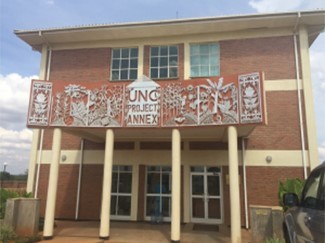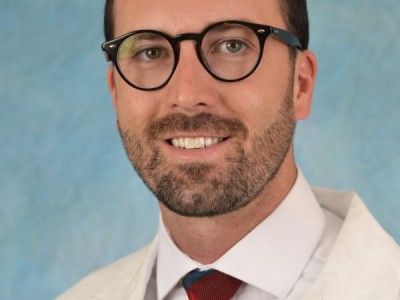Global Health in Malawi and Zambia
Global Health in Malawi and Zambia
Thirty years ago, faculty from UNC-Chapel Hill were invited by the Malawian government to help the country develop treatment protocols for sexually transmitted infections (STIs), supported by a grant from the U.S. Agency for International Development. In 1999, Carolina partnered with the Malawi Ministry of Health to establish UNC Project−Malawi, a research, care and training program in Lilongwe. Starting with just two Carolina faculty members, UNC Project-Malawi now employs more than 300 people.
UNC Project-Malawi has since expanded its research portfolio to include other infectious diseases such as malaria and tuberculosis, as well as epidemiology, nutrition, water, cancer, family planning, maternal and child health and injury prevention. The project also strives to help strengthen health systems in Malawi. Through initiatives such as the UNC-Malawi Surgical Initiative and the Malawi Cancer Consortium, doctors and other health practitioners gain experience in research and clinical care in adult medicine, antenatal care, HIV counseling/testing, HIV/AIDS treatment, internal medicine, oncology, pediatrics, surgery, pathology, pharmacology, radiology and management of STIs. Training is provided in lab science, medical geography, nursing, nutrition, adult medicine, pediatrics, obstetrics, gynecology and reproductive health, surgery and pathology. The project has a growing relationship with the University of Malawi’s College of Medicine. Several Carolina faculty members hold joint appointments, and the institutions collaborate in training and strategic planning.
Carolina’s Eshelman School of Pharmacy provides opportunities for students to complete rotations in Malawi, and students from the Adams School of Dentistry undertake annual trips to Malawi to provide dental care and oral health and hygiene education. Carolina’s African Studies Center has provided language support for colleagues working in Malawi.
In 2012, the UNC-Chapel Hill Institute for Global Health and Infectious Diseases recruited key faculty from the University of Alabama at Birmingham to continue work they were conducting in Zambia. Working closely with the Zambian government, this team had been instrumental in the rapid scale-up public health interventions for HIV care, treatment and prevention and had developed a robust research portfolio focusing on HIV, as well as in women’s cancers, obstetric outcomes and maternal-child health. Carolina’s Zambia team has developed strong collaborations with the University of Zambia School of Medicine to further build research and public health infrastructure. The broad approach to collaboration has expanded to include faculty from Carolina’s Gillings School of Global Public Health and Eshelman School of Pharmacy. Today, UNC-Chapel Hill’s operations in Malawi and Zambia are closely intertwined.
Partnership News
Related Programs and Initiatives
- Study abroad in Malawi through the Study Abroad Office
- UNC Project-Malawi
- UNC-Malawi Cancer Consortium
- Malawi Surgical Initiative
- Adams School of Dentistry Malawi Project



